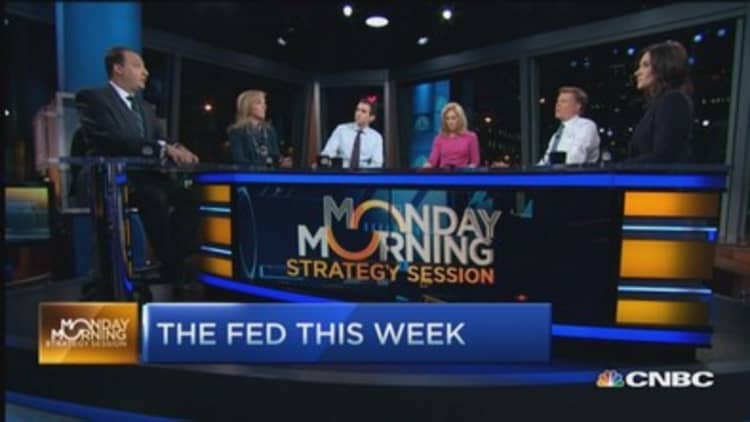
The Federal Reserve can no longer justify a zero interest rate policy as wages bottom out and easy money creates dislocations in the market, strategist Jason Trennert said Monday.
"There's a lot of hot money going into places that's helping people it wasn't designed to help. That is the problem with zero-percent interest rates forever. Ultimately you're not getting at what you really want to get, which is middle class employment," the chief investment strategist of Strategas Research said in an interview on CNBC's "Squawk Box."
Read More The Fed could put the brakes on the dollar rally
Investors are awaiting a statement from Fed Chair Janet Yellen on Wednesday. They are looking for signs that it will raise interest rates, in particular, whether it removes the word "patient" from language used in previous statements in regard to its timeline for hiking rates.
Yellen is a dove by any standard who is very worried about wages and employment, Trennert said. As a result, she will remain very deliberative even after she starts to raise rates, so the hike should not be a major concern for investors.
The Fed has spent so much time justifying zero-percent interest rates, it has reinforced the idea that lifting off from zero is "a very negative thing" and will put the economy at risk, said Michelle Girard, chief U.S. economist at RBS.
"To have interest rates at 1 percent—I don't think this is something that creates economic risk. I have people say, 'When they tighten this could throw us back into recession.' We're all mixed up," she said on "Squawk Box."
Read More Why the Fed is setting markets on a hair-trigger
While reported inflation measures for consumer prices are not showing any kind of upturn, the Fed runs the risk of inflating financial and asset prices by not acting sooner to raise rates, she said. If a bubble forms and bursts, investors will be worse off than if the Fed had hiked sooner, she added.
The excess liquidity created by zero interest is going directly into financial assets, not productive investment like capital expenditures, Trennert said.
"There's a very strong tendency for financial engineering as opposed to true economic structural reform of the corporations," he said.



